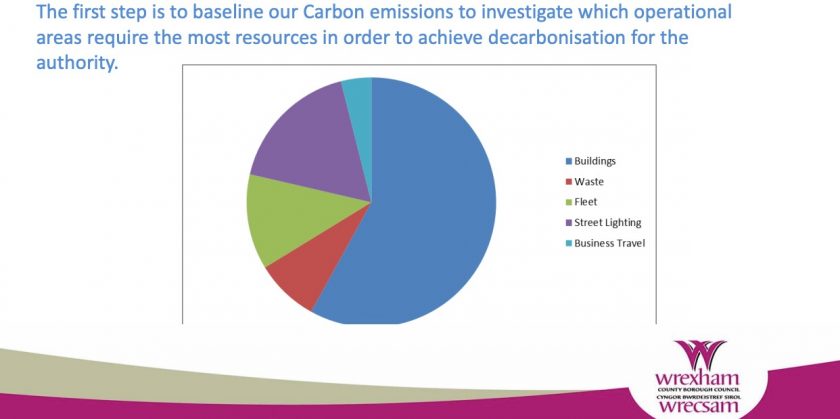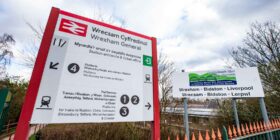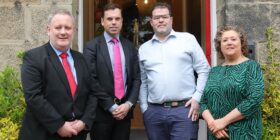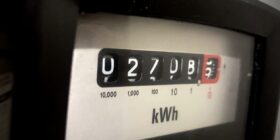Call for governments to create ‘green fund’ to help councils achieve carbon neutral status by 2030
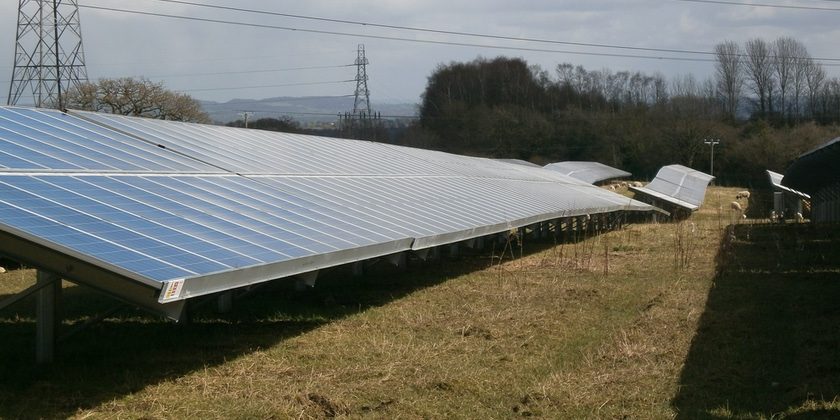
Wrexham’s councillors will be asked next week to back the council’s decarbonisation plan in the coming weeks amid a plea for a specific funding pot to help achieve a bold 2030 target for carbon neutrality.
The Welsh Government declared a Climate Emergency in Wales in April 2019. In the declaration, it set out ambitious plans for the public sector to be carbon neutral by 2030. In response to this, Wrexham Council declared its own Climate and Ecological Emergency in September 2019, and committed to establish a Decarbonisation Plan, detailing how to meet the target.
A climate emergency was also declared by Wrexham Council in 2019 and last year the local unveiled a series of proposals to help it respond to the climate emergency by becoming a carbon neutral organisation.
The proposed Plan concentrates buildings, transport and mobility, land use and procurement.
Lead Member for the Environment Cllr David A Bithell said, “Following on from the declaration of the climate emergency work hasn’t stopped, although obviously the pandemic has hindered some of the progress, so we are 12 months delayed.”
“I am pleased now that we’re bringing this report forward for consideration of the Executive Board, getting members to support our decarbonisation plan and our strategy going forward. It’s also going to Scrutiny next week, and it’s also going to Full Council the week after, because that’s where it all started.”
“The strategy documents gives some background information on some of the key projects that we’ve done, the Legacy solar project, street lighting upgrades, electric vehicles, charging points, renewable heat projects, and rolling out of the electric fleet vehicle, together with ours being one of the best performance recycling in Wales.”
“The main focus of the plan going forward is broken down into four key categories, it’s buildings, mobility and transport, land use and procurements. So the first phase of the project is to get members to sign up to the strategy, and then the next steps will be to review the baseline for all our projects across the council.”
“The carbon project board is working with key partners across each individual department like education, procurement, facilities management, housing environment, so that meets behind the scenes and then baseline admissions will be developed further in the next 12 months so we can take this project forward.”
Speaking on the decarbonisation plan and associated documents that have been published, he added, “Attached to the report that is our decarbonisation strategy, and we’re asking members to sign up to our decarbonisation plan going forward to address the concerns from 2021 to 2030, in line with our requirements in the climate emergency that we declared.”
We asked how progress will be measured, and how often the public and councillors will be kept informed of any such benchmarks and figures.
Cllr Bithell pointed to the report before councillors noting it contains a recommendation for an annual report to the Executive Board: “The report is going to Scrutiny next week so I would imagine that Scrutiny will want to see that either yearly or twice yearly, so that they can monitor the effectiveness. Then it’s a matter for Council whether they want an annual report to Council.”
“As far as internally within the council, we’ve got a number of program boards, a improving the environment program board, so it will go there every six weeks. So as soon as we get our baseline admissions, we will be updating as far as we can.”
The plan published states again “We are committed to becoming a carbon neutral organisation by 2030”, we asked how realistic that target is.
Cllr Bithell replied: “If I was going to be honest, and I will be honest, at the moment, it feels like a real tall ask to to achieve that by 2030. But, it’s like everything else, if you don’t set ambitious targets to do something, you’re never going to do it.”
“Clearly, we’ve got lots of work to do. Truthfully, we need the money now to do it because if we want to decarbonise, we need to change and that comes with a cost. It comes with a cost to the public, because the public need to engage with us as well, the public needs to be on board.”
The budget for the ambitious carbon project is just under £225,000 for 2021-22, with the Council Leader calling on Westminster and Cardiff Bay governments to bring in a ‘Green Fund’ to help deliver ambitious targets of decarbonisation.
Council Leader Mark Pritchard called on UK and Welsh Governments to a dedicated ‘environmental fund’, “I think both governments have to put a pot of money aside now, and we’ve got a new government in place in Wales with new MSs, and it will be interesting to see what they do on this agenda because everybody’s declared a climate emergency.
“Are they going to put some money into the pot? Let’s call it a green fund or an environmental fund, either way a substantial amount of money that we can draw down to subject to the schemes being supported.”
“We are surrounded in Wrexham by rivers, imagine what schemes we could do! In Bangor on Dee we could generate enough electricity with turbines to to actually run all the streetlights there. Bersham, Clywedog Cefn… there’s lots to be done. We have wonderful ideas but it does come at a cost.
“We have done phase one of photovoltaics on a percentage of our council houses, we’d like to finish that. On street lighting, can you imagine a large percentage of the street lighting being run from turbines because of the water which surrounds our communities, and villages? We are wedded to supporting a reduction of our carbon footprint and we’ve done a substantial amount of work.”
“Our schools, you can imagine that we put photovoltaic on every school? Underground sourced heat pumps, wind turbines, it’s endless. The technology’s there, we just need to have some money, and we’ll put money in it, we will do it locally, as well as we’ve done in the past.
“I just think there has to be a national pot of money. We do need some pump priming from governments to put into this pot, and we could do so many things here in Wrexham, and in North Wales and across the country”.
Usually when reports come before councillors various impact assessments are detailed as part of the decision making process, split into Budget / Legal / Staffing / Human Rights, we enquired if there will now be a climate related section.
Cllr Bithell said, “One of the points that I’ve raised is about decision making process, and it does require further discussion. What I’d like to see is an added column on the Executive Board, Scrutiny and Full Council reports – ‘How does this decision impact on our climate emergency and our decarbonisation work going forward?’ ”
Council Chief Executive Ian Bancroft added: “There are a number of impacts we assess in our decision making, and we do it through impact assessments that are then summarised at the bottom of reports. We are moving towards, and this is the work David’s describing, is what’s called an integrated impact assessment, where rather than looking things separately, we do it as a whole, and do an integrated impact assessment across all key areas.”
The main council decarbonisation plan contains a range of detail on some of the successful projects implemented already by Wrexham Council:
- Domestic Solar PV In 2011/12 we installed solar panels on 2675 of our council properties. This saves each tenant money on their electricity bills and the Council receives a Feed in Tariff (FIT) payment from our utility company each quarter, for a total of 25 years. This income will go towards improving our properties further. The total carbon emissions saved by generating this power is 14,974,806 kg.
- Non- Domestic Solar PV – Following from the success of the domestic solar project we installed panels on fifteen of our schools, two offices and two of our resource centres.
- Ruthin Road – Large scale PV installation of 250 kWh – providing over 40% of energy use for our central housing office.
- Legacy Solar Farm – One of the Council showcase projects has been the installation of a large 2.6MW Solar Farm in legacy, where approximately 8800 panels are installed. Up until the end of last year the solar had generated 10,992,900 kwh. The Solar Farm was the first in Wales to be constructed, operated and maintained by a local authority. The income generation from this project, is reinvested in energy saving projects and renewable energy schemes. The income generation through the Feed in Tariffs, will form the basis of our ongoing carbon invest to save budget.
- Street Lighting – An ambitious project, which has seen the replacement of all street lighting across the County Borough to LED, generating significant carbon and financial savings.
- LED Lighting Upgrades – The continued replacement of old and inefficient lighting to LED has been rolled out across schools and offices. Immediate carbon and financial savings are derived from these projects and continue to be successful schemes to decarbonise our buildings.
- Electric Vehicle Charging Points – One of the leading Welsh local authorities to install Electric Vehicle Charging Points in publicly accessible car parks. We have installed charging points across fourteen of our publicly car parks and seven points within our Council offices. We are now able to promote that we have installed the first 100kw Charger in North Wales, which has the capacity to charge a car to 80% in under 30 minutes. We have also established a charging hub in the town centre, with a rapid charging unit and three fast charging stations.
- Renewable Heat – The Council embarked on an project to install a large Biomass Boiler at Redwither Tower on the Wrexham industrial estate. This system to provides to low carbon heat to this large building and generates an income for the Council through the Renewable Heat Incentive.
- Electric Fleet – The Council owns a series of electric vehicles to be used by staff with an additional number currently awaiting delivery. These have been very successful and have provided a great alternative for staff to use whilst travelling to meetings.
- Waste and recycling – The Council has worked hard over the last 20 years to improve our recycling figures, from kerbside collections, and our Household Waste Recycling Centres. We have achieved all of our statutory targets since 2010, and have consistently been amongst the highest performing local authorities in Wales. Our recycling targets have been impacted by Covid-19, however we continue to work towards our 2025 target of 70% recycling.
The Executive Board meets at 10am on Tuesday and you can watch online here on council TV.
Spotted something? Got a story? Email [email protected]

